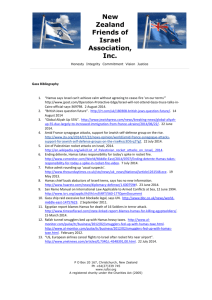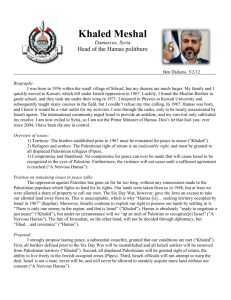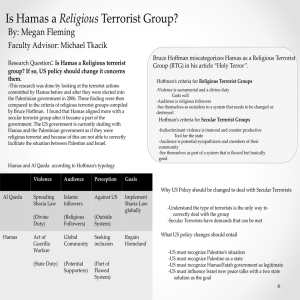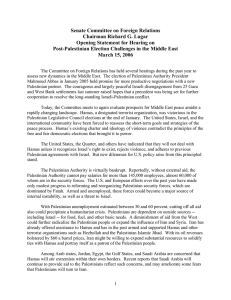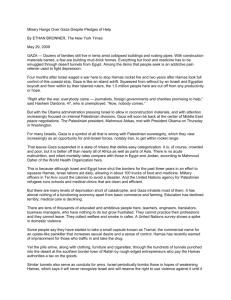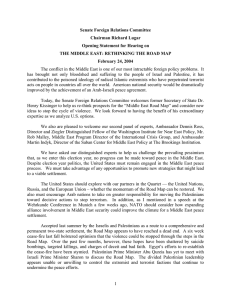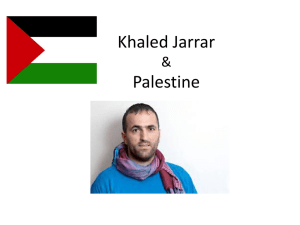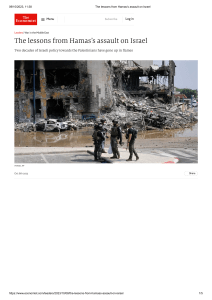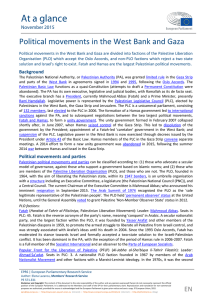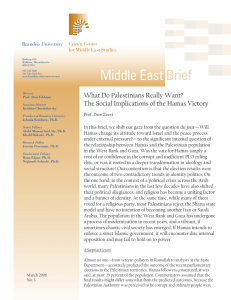Opening Statement: “Post-Palestinian Election Challenges” Joseph R. Biden, Jr. March 15, 2006
advertisement
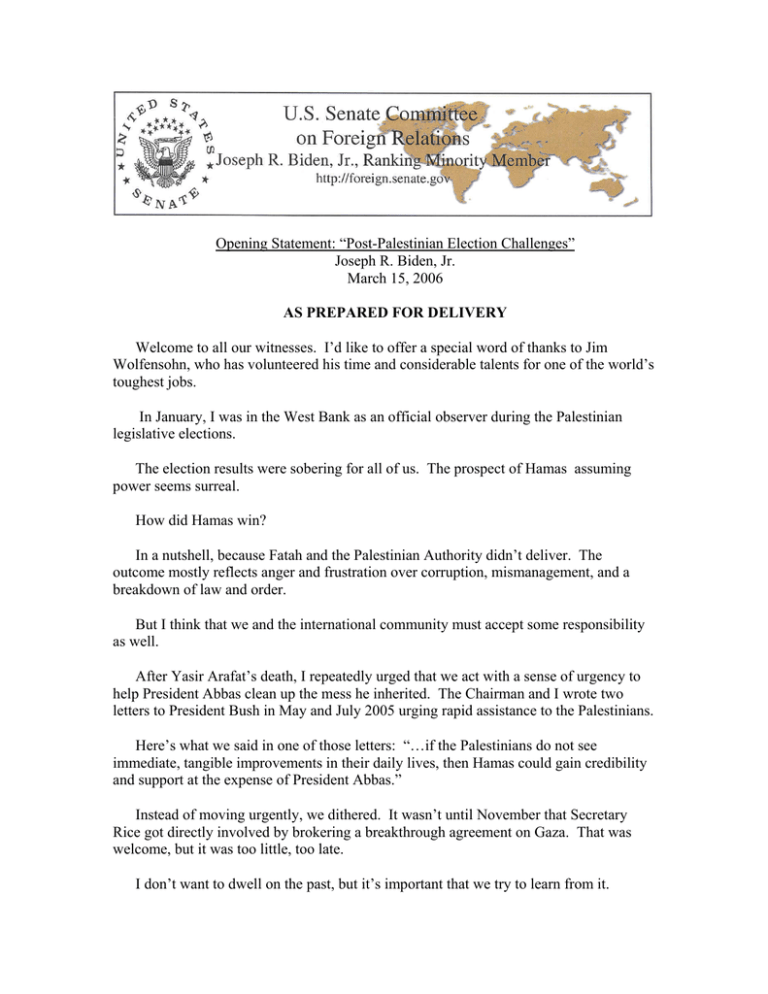
Opening Statement: “Post-Palestinian Election Challenges” Joseph R. Biden, Jr. March 15, 2006 AS PREPARED FOR DELIVERY Welcome to all our witnesses. I’d like to offer a special word of thanks to Jim Wolfensohn, who has volunteered his time and considerable talents for one of the world’s toughest jobs. In January, I was in the West Bank as an official observer during the Palestinian legislative elections. The election results were sobering for all of us. The prospect of Hamas assuming power seems surreal. How did Hamas win? In a nutshell, because Fatah and the Palestinian Authority didn’t deliver. The outcome mostly reflects anger and frustration over corruption, mismanagement, and a breakdown of law and order. But I think that we and the international community must accept some responsibility as well. After Yasir Arafat’s death, I repeatedly urged that we act with a sense of urgency to help President Abbas clean up the mess he inherited. The Chairman and I wrote two letters to President Bush in May and July 2005 urging rapid assistance to the Palestinians. Here’s what we said in one of those letters: “…if the Palestinians do not see immediate, tangible improvements in their daily lives, then Hamas could gain credibility and support at the expense of President Abbas.” Instead of moving urgently, we dithered. It wasn’t until November that Secretary Rice got directly involved by brokering a breakthrough agreement on Gaza. That was welcome, but it was too little, too late. I don’t want to dwell on the past, but it’s important that we try to learn from it. 2 The question today is how do we respond to the Hamas victory? Obviously, Israel cannot be expected to negotiate with a party that seeks its destruction and engages in terrorism. It seems to me the so-called Quartet – the U.S., the E.U., Russia and the U.N. – has it just right: The next Palestinian government must recognize Israel, renounce violence, and accept past agreements. That’s why I joined Senator McConnell in introducing legislation prohibiting aid to a Hamas government until it meets those conditions. At the same time, we’ve made important exceptions for the basic needs of the Palestinian people and the office of President Abbas. I believe we should urge other countries to adhere to the Quartet position. In particular, we need to press the Arab Gulf States not to rush in and financially support Hamas. That would take the pressure off. Does Hamas want to continue as a radical terrorist organization? Or will it respond to the Palestinian public which wants reform, but doesn’t want isolation, poverty, and extremism. Simply put, Hamas must choose between bullets and ballots, between destructive terror and constructive governance. It cannot have it both ways. At the same time, we must not punish ordinary Palestinians for the sins of Hamas. I believe we should redouble our commitment to their welfare. We may need to look at new ways of delivering aid. That may require new coalitions from the private sector, NGOs, and international organizations. I look forward to exploring these and other ideas with our witnesses today.

